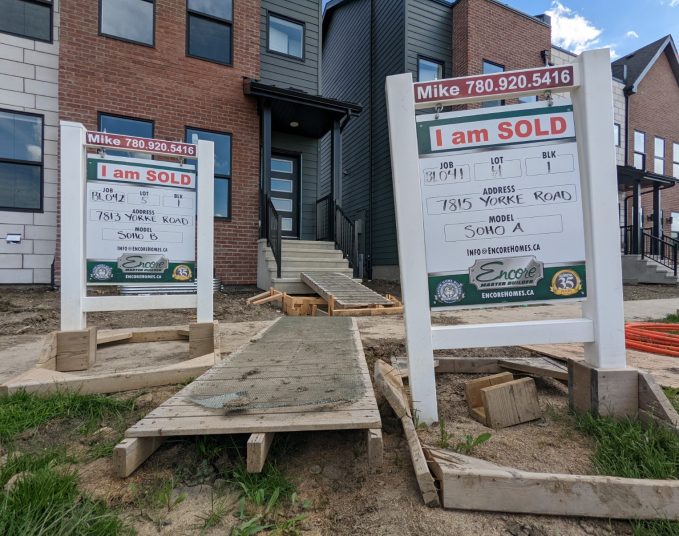If you watch the nightly news, there are lots of stories about the crash in real estate prices. The problem is, these stories are aimed at audiences who have endured the overcooked markets in Toronto and Vancouver. We’ve gawked at those two cities and their unsustainable real-estate bubbles for a while now.
We can easily assume those trends translate to Edmonton, but they don’t. On Tuesday, Royal LePage released its overview of the Canadian real estate market. And, despite rising interest rates and economic uncertainty, it predicts that the price of the average Edmonton home will rise from $438,300 in winter of 2022 to $442,683 by winter of 2023. It’s a modest increase, but an increase, nonetheless.
“I tell people that Edmonton is the least exciting real estate market in the country,” said Tom Shearer, broker at Royal LePage Noralta Real Estate. “We don’t often see big jumps, and we don’t see big drops.”
So, if interest rates are up — if we’re looking to save money at every corner — why are homes maintaining their values in Edmonton, while we’re reading about freefall in other cities? Shearer employs 165 agents, and he said the feedback he gets is that about one in six people in the home-buying market is from out of town. Those people looking to move into Edmonton are helping the demand side of things.
“Edmonton has a lot of things going for it,” says Shearer. “First, people say, ‘I can get a job that will pay me well.’ Second, they say, ‘When I land that job that pays me well, I can own a home that’s close to my job, that is pleasant.’ They realize that this makes them happy.”
That affordability factor is what makes Edmonton attractive as a destination for investment, says Kalen Anderson, executive director of the Urban Development Institute, which represents land developers and their partners in the region. She warns that we need to ensure that a small bump in housing prices doesn’t get overheated.
“To ensure our region remains an attractive place for people to migrate to, from across Canada and around the world, we will need to keep housing costs low and non-residential development opportunities plentiful,” wrote Anderson in an email. “Municipalities can contribute to this outcome by opening up more land for development and providing a clear and predictable picture of development requirements, timelines and costs.”
UDI’s research indicates that when the average price of an entry-level home rises by $10,000, almost 7,600 potential households are priced out of the market. So, an increase of $50,000 shuts almost 37,000 out.
“This advantage is precarious, as marginal increases in cost can price out a significant number of potential home buyers,” states UDI.
Another area where Edmonton bucks trends is the condo market. Royal LePage predicts that condos will drop in price from an average of $201,300 at the end of 2022 to $198,281 at the end of 2023. If there is good news for someone in Edmonton who is looking to sell a condo, Shearer doesn’t think there’s room for them to drop any more. He believes there are lots of opportunities when it comes to downtown condos, as the expansion of universities and colleges in the core will make those units more desirable.
“I think they have found where they are going to rest in terms of bottoming out,” he said. “Eventually, the value will come back.”
Savvy AF. Blunt AF. Edmonton AF.




